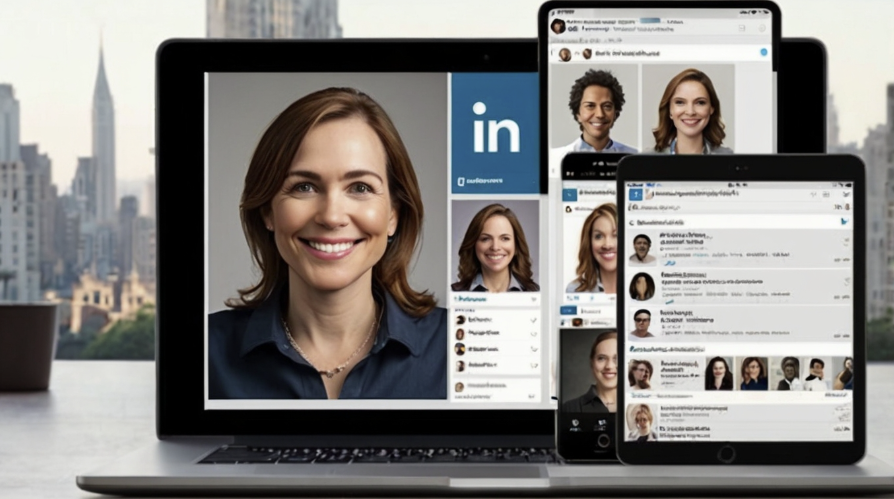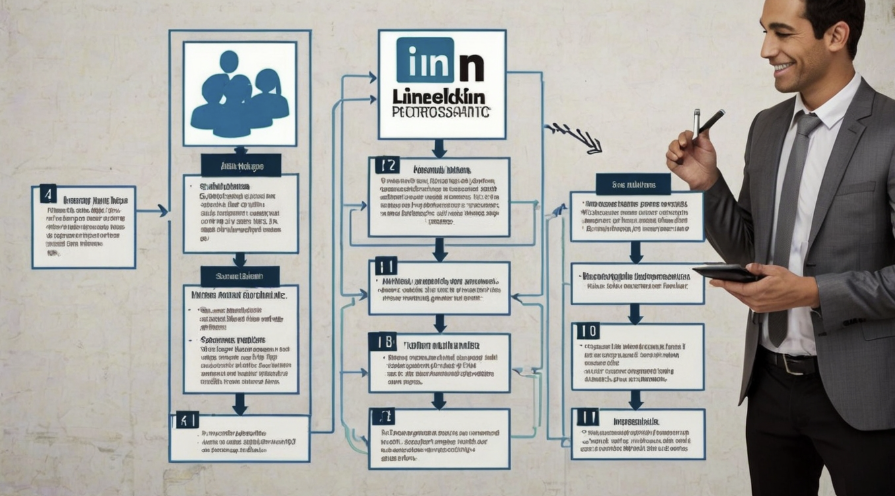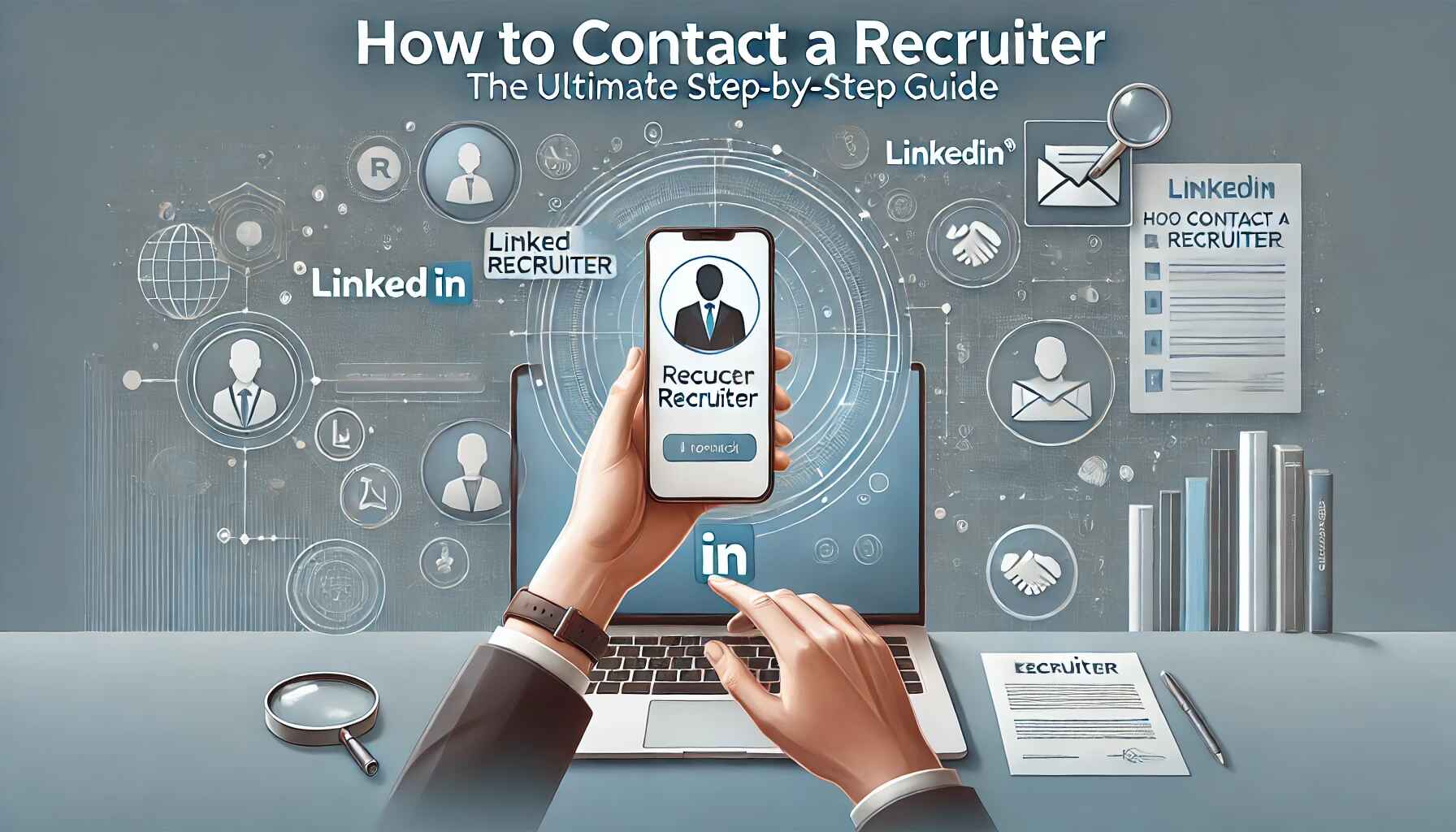How to Contact a Recruiter: The Ultimate Step-by-Step Guide
Getting in touch with recruiters doesn't have to be hard. First, make your LinkedIn profile look great. Then, find recruiters who work in your field. Write a clear message about why you're reaching out. Always be professional and follow up politely. These simple steps will help you connect with recruiters who can advance your career.
Key Takeaways
- Build a strong LinkedIn profile before reaching out to recruiters. Include a professional photo and detailed work history.
- Write personalized messages to each recruiter. Generic messages often get ignored and can hurt your chances.
- Follow up within one week if you don't hear back. One polite follow-up shows interest without being pushy.
- Stay in touch with recruiters even when you're not job hunting. This helps build long-term relationships for future opportunities.
Why Recruiters Can Transform Your Job Search
The job market has changed a lot in recent years. Many of the best jobs never appear on job boards. Recruiters hold the keys to these hidden opportunities. They know about jobs before they become public. A good relationship with recruiters can fast-track your career growth.
Why You Should Talk to Recruiters
Recruiters serve as gatekeepers to many of the best job opportunities in today's market. They not only connect you with immediate openings but can also become long-term allies in your professional growth.
Hidden Jobs You Can't Find

Most people don't know that 80% of jobs never reach public job boards. Companies often fill these roles through recruiter networks. Recruiters get early information about new positions. They know about jobs that are opening up months in advance. This inside track gives you a big advantage in your job search.
Get Inside Knowledge
Recruiters do more than just fill jobs. They know which skills are in high demand. They understand salary trends in your industry. Many can tell you if your resume needs work. They often know which companies are growing or shrinking. This knowledge helps you make smarter career moves.
Get Ready to Contact Recruiters
Preparation is the key to making a strong first impression with recruiters. Taking time to organize your professional materials and research potential contacts will set you apart from other candidates.

Fix Up Your Professional Brand
Your professional brand matters more than you might think. Start with a strong LinkedIn headline. Write a clear summary of your work experience. Add numbers to show your achievements. Update your skills section with relevant keywords. Make sure your profile photo looks professional and current.
Research and Target Strategy
Not all recruiters work in your field. Learn about different types of recruiters. Company recruiters know one business very well. Agency recruiters work with many companies at once. Executive recruiters focus on high-level jobs. Industry specialists know one type of work deeply.
Making Contact
The way you reach out to recruiters can make or break your chances of getting a response. Understanding the best channels and timing for your outreach will significantly increase your success rate.

Perfect Timing Matters
Recruiters get hundreds of messages each week. Tuesday and Wednesday mornings work best for outreach. Avoid contacting them during busy hiring seasons. Skip major holidays and late evening hours. Time your message when recruiters are most likely to read it.
Choose Your Channel Wisely
LinkedIn remains the top platform for professional networking. Use the platform's search features to find relevant recruiters. Join industry groups where recruiters are active. Follow companies you're interested in to connect with their recruiters.
Email Strategy
When using email, stand out from the crowd. Write subject lines that grab attention. Keep your message focused on value. Show what you can offer. Make your resume easy to scan. Follow up within a week if you don't hear back.
Writing Your Message
Your initial message to a recruiter needs to be clear, concise, and compelling. The right approach can capture their attention and start a productive professional relationship.
Crafting Your Approach
Your first message must capture interest quickly. Start with a strong opening line. Mention shared connections or interests. Explain your relevant background briefly. End with a clear next step or question.
Powerful Message Templates
For LinkedIn: "Hi [Name], I noticed you recruit for [industry] roles. With [X] years in [specific skill], I'd love to discuss opportunities. Would you be open to a brief connection?"
For email follow-up: "Hi [Name], I appreciate the LinkedIn connection. I'm exploring roles in [field] and would value your insights. Could we schedule a short chat next week?"
Building Better Relationships
Successful relationships with recruiters extend far beyond the initial contact. Creating lasting connections requires consistent effort and genuine interest in maintaining professional ties.
Long-term Connection Strategy
Think beyond the immediate job search. Share useful industry articles. Comment on their LinkedIn posts. Offer to help when you can. Stay in touch every few months. Send updates about your career progress.
Avoid Common Pitfalls
Many people make the same mistakes. They send mass messages without personalizing. They follow up too aggressively. Some exaggerate their skills. Others disappear after getting help. Learn from these mistakes to stand out.
Making Meetings Count
Success in recruiter relationships comes from taking consistent, strategic action. Every interaction is an opportunity to strengthen your professional network and create new opportunities.
Preparation Steps
Research is your foundation for success. Learn about the recruiter's background. Understand their client companies. Know their hiring patterns. Prepare thoughtful questions. Practice your elevator pitch until it flows naturally.
Value Exchange
Strong professional relationships work both ways. Introduce them to talented people you know. Share valuable industry insights. Support their social media presence. Write recommendations when appropriate. Look for ways to help them succeed.
Conclusion
Talking to recruiters isn't complicated when you follow these steps. Focus on being clear, professional, and helpful. Take time to build genuine relationships. Remember that not every message will get a response. Stay positive and keep trying.
Next Steps
Begin your outreach today. Start by updating your LinkedIn profile. Choose five recruiters who work in your field. Send your first message using the examples above. Give relationships time to develop naturally.
Remember to keep your communication professional but friendly. Write clearly and simply. Show respect for the recruiter's time. Stay patient as you build these important career connections.
Frequently Asked Questions
How long should I wait before following up with a recruiter?
Wait 5-7 business days after your initial message before following up. Send one polite reminder expressing continued interest. Any more follow-ups might seem pushy and harm your chances.
Should I contact multiple recruiters at the same company?
Focus on building a relationship with one recruiter per company. Contacting multiple recruiters can seem desperate and create confusion. Choose the recruiter whose expertise best matches your field.
Is it okay to contact recruiters if I'm not actively job hunting?
Yes, building relationships with recruiters before you need a job is smart. It helps create genuine connections without pressure and keeps you informed about industry opportunities.
What's the best time to message a recruiter on LinkedIn?
Send messages Tuesday through Thursday between 9 AM and 11 AM. Recruiters are most active during morning hours and early in the week, increasing your chances of response.
How do I ask a recruiter about salary range?
Wait until after initial contact to discuss salary. Then ask professionally: "Could you share the compensation range for this role? I want to ensure we're aligned on expectations."









